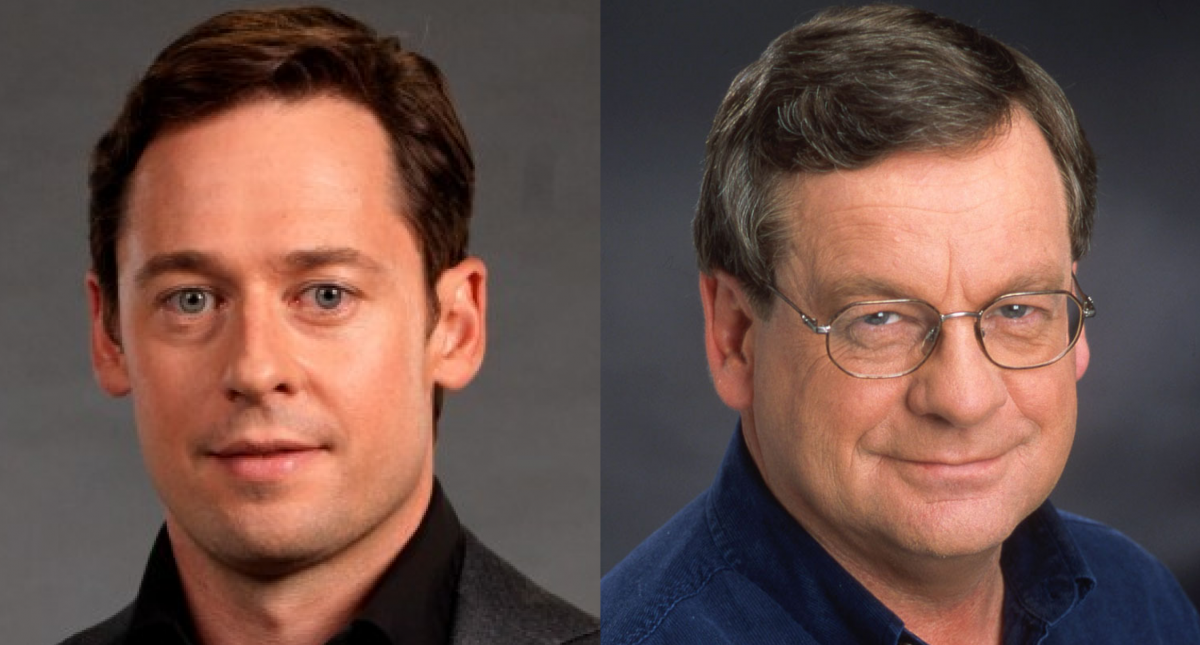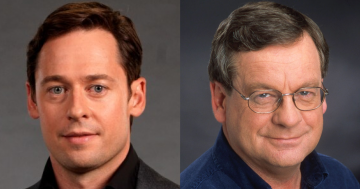
Nick McKenzie and Chris Masters. Photos: Nine Entertainment.
The fall from grace for soldier Ben Roberts-Smith could not have been more spectacular and more brutal.
Some might ask what was going through his head when he decided to pursue defamation action against the journalists and the media outlets who first aired very serious, and what we now know to be true, allegations about his conduct.
Or course, to not challenge the allegations would have amounted to an admission of guilt. Maybe he thought, as a decorated war hero whose actions and bravery had been celebrated by Australians at all levels, nobody could possibly challenge his standing.
The verdict by Justice Anthony Besanko is vindication of the hard work, diligence and confidence of two of Australia’s most outstanding investigative journalists, Nick McKenzie and Chris Masters. And it could not have come at a better time for the media industry.
Investigative journalism is a dying art.
Social media, and the short attention span of most of its followers, has simplified and dumbed down much of what passes for journalism today. Media companies who once would invest money and time into supporting long forms of journalism, and the toil and trouble that comes with investigative journalism, are now struggling to see its worth financially.
The success of a media outlet these days is often measured by the number of clicks on a website and the number of followers on social media. More and more, these outlets prefer hiring social media-savvy reporters rather than tried and tested old-school journos who don’t mind getting their hands dirty and treading on a few toes in the process.
For a big story like the Ben Roberts-Smith war crimes investigation, a good journalist would require weeks, maybe months, to collate all the facts, test their credibility, nurture and encourage witnesses, checking every step of the way with lawyers.
Some of these types of investigations may eventually turn up blank. For every successful media investigation, there are always one or two that never make it to print or onto the airwaves. This is the way of this form of media, and why when the type of investigation carried out by Nick McKenzie and Chris Masters not only appears on front pages but then also stares down, and eventually triumphs, over threats of defamation, our industry, and Australians generally, should celebrate.
Journalists, rightly or wrongly, have a very low standing among the general public. It’s always been that way, but it’s certainly become much worse since leaders like Donald Trump and Jair Bolsonaro arrived on the scene with their catch-cry of “fake news”.
Some of that criticism is entirely justified. But critics need to stop and ask where we would be if we didn’t have tenacious journalists prepared to put in the hard yards to expose people like Ben Roberts-Smith, like the Robodebt scandal, like sports rorts.
So let’s all celebrate this triumph for journalism and hope that it not only encourages more support for investigative reporting but also sends a timely reminder to those in power or positions of influence that you will not always get away with murder.
















